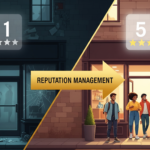Content is king, but even the most captivating, informative, or entertaining content needs a solid strategy to truly shine.
Think of it like this: you wouldn’t build a house without a blueprint, right? You’d need to know the dimensions, the layout, the materials, and the style you’re aiming for. The same goes for your content marketing. A well-crafted strategy ensures you’re using your resources wisely and creating content that actually gets results.
Why a Content Strategy Matters
In today’s digital world, where consumers are bombarded with information from all directions, a strategic approach to content creation is more critical than ever. A solid content strategy acts as your roadmap, guiding your efforts and ensuring that your content resonates with your target audience, achieves your business goals, and provides a strong return on investment.
Here’s why a content strategy is essential for your business:
- Clear Goals and Objectives: A strategy helps you define your objectives and measure your progress. What do you want to achieve with your content? More website traffic? Increased brand awareness? Lead generation? Sales? A well-defined strategy outlines your goals and provides a framework for tracking your success.
- Deep Understanding of Your Audience: Who are you trying to reach with your content? What are their interests, needs, and pain points? A content strategy involves thorough audience research to ensure you’re creating content that resonates with the right people.
- Focus on Quality Content: A strategy helps you focus on creating high-quality, valuable content that engages your audience and builds trust. It’s not just about churning out content for the sake of it; it’s about creating content that provides value, answers questions, and establishes your expertise.
- Effective Content Distribution: A content strategy outlines how you will distribute your content to reach your target audience. This could involve social media marketing, email marketing, search engine optimization (SEO), paid advertising, and other channels.
- Performance Measurement and Optimization: A strategy includes ways to track your results and see what’s working (and what’s not). By analyzing data and metrics, you can refine your approach, optimize your content, and ensure you’re getting the most out of your efforts.
Key Components of a Winning Content Strategy
- Define Your Goals and Objectives:
- Increase Brand Awareness: Make your brand more recognizable and memorable.
- Generate Leads: Capture contact information from potential customers.
- Drive Sales: Encourage customers to purchase your products or services.
- Improve Customer Engagement: Increase interaction and build relationships with your audience.
- Educate Your Audience: Provide valuable information and establish your expertise.
- Understand Your Audience:
- Conduct thorough research: Use surveys, interviews, and data analysis to understand your target audience’s demographics, interests, needs, and online behavior.
- Create buyer personas: Develop detailed profiles of your ideal customers to guide your content creation.
- Analyze your competitors: See what type of content your competitors are creating and how you can differentiate yourself.
- Choose the Right Content Formats:
- Blog posts: Share in-depth articles, how-to guides, and thought leadership pieces.
- Videos: Create engaging videos, such as product demos, explainer videos, and behind-the-scenes content.
- Infographics: Present data and information visually in an easy-to-understand format.
- Ebooks and guides: Offer valuable downloadable resources to capture leads and provide in-depth information.
- Social media updates: Share engaging content, participate in conversations, and build relationships with your audience.
- Email newsletters: Deliver valuable updates, promotions, and information directly to your subscribers’ inboxes.
- Webinars and online events: Host interactive events to engage with your audience and share your expertise.
- Case studies: Showcase your successes and demonstrate the value of your products or services.
- Content Distribution:
- Social media marketing: Share your content on relevant social media platforms to reach a wider audience.
- Email marketing: Use email newsletters to promote your content and drive traffic to your website.
- Search engine optimization (SEO): Optimize your website and content for search engines to improve your visibility in 1 search results.
- Paid advertising: Use paid advertising platforms, such as Google Ads or social media ads, to promote your content to a targeted audience.
- Content syndication: Republish your content on other websites or platforms to reach a new audience.
- Measure Your Results:
- Website traffic: Track the number of visitors to your website and the sources of that traffic.
- Engagement metrics: Monitor likes, shares, comments, and other engagement metrics on social media.
- Lead generation: Track the number of leads generated through your content marketing efforts.
- Sales conversions: Measure how many leads convert into paying customers.Return on investment (ROI): Calculate the ROI of your content marketing campaigns to assess their effectiveness.
Statistics: The Proof is in the Numbers
- Content marketing generates three times as many leads as traditional marketing and costs 62% less. (Demand Metric)
- 82% of consumers feel more positive about a company after reading custom content. (Demand Metric)
- 60% of consumers say that blog posts are valuable in helping them make a purchase decision. (Demand Gen Report)
- Companies that blog get 55% more website visitors. (HubSpot)
Need Help Creating a Content Strategy That Rocks?
Business Solutions Marketing Group can help! We’ll help you define your goals, understand your audience, and create a content plan that drives results. Our team of experienced marketing professionals can assist with:
- Content strategy development: We’ll work with you to create a customized content strategy that aligns with your business goals and target audience.
- Content creation: We’ll produce high-quality, engaging content in various formats, including blog posts, videos, infographics, ebooks, and more.
- Content distribution: We’ll promote your content across various channels to reach your target audience and maximize your impact.
- Performance tracking and analysis: We’ll track your content’s performance, analyze the data, and provide insights to help you optimize your strategy.
Don’t let your content marketing efforts fall flat. Contact Business Solutions Marketing Group today and let us help you create a content strategy that drives results!







